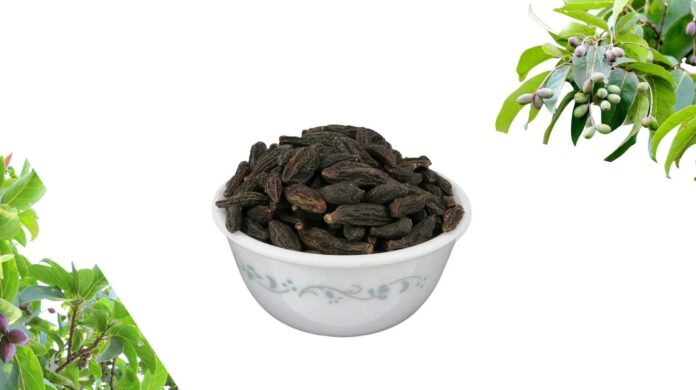What is Harad?
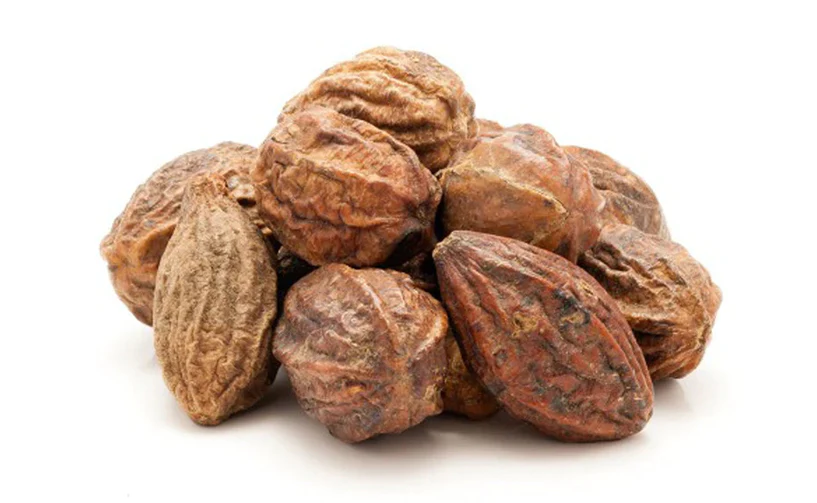
Harad, also known as Haritaki, is the fruit of the Terminalia chebula tree, native to South Asia and India. It is a staple in Ayurvedic medicine and is celebrated for its wide range of health benefits. The fruit is small, oval-shaped, and greenish-black when dried. Harad powder uses are often the most common in various herbal formulations to promote digestive health, boost immunity, and support overall well-being.
Classification
Harad is also classified into two main types based on size:
- Choti Harad (Small Harad) – Smaller in size and often harvested early. It is typically used for treating digestive issues like constipation and indigestion. Choti Harad is also considered milder in its effect.
- Bari Harad (Large Harad) – Larger in size and harvested later. It is more potent and used for a wide range of therapeutic purposes, including improving immunity, treating respiratory issues, and enhancing overall vitality.
Both are used in Ayurveda for their medicinal properties, but Bari Harad is generally considered stronger.
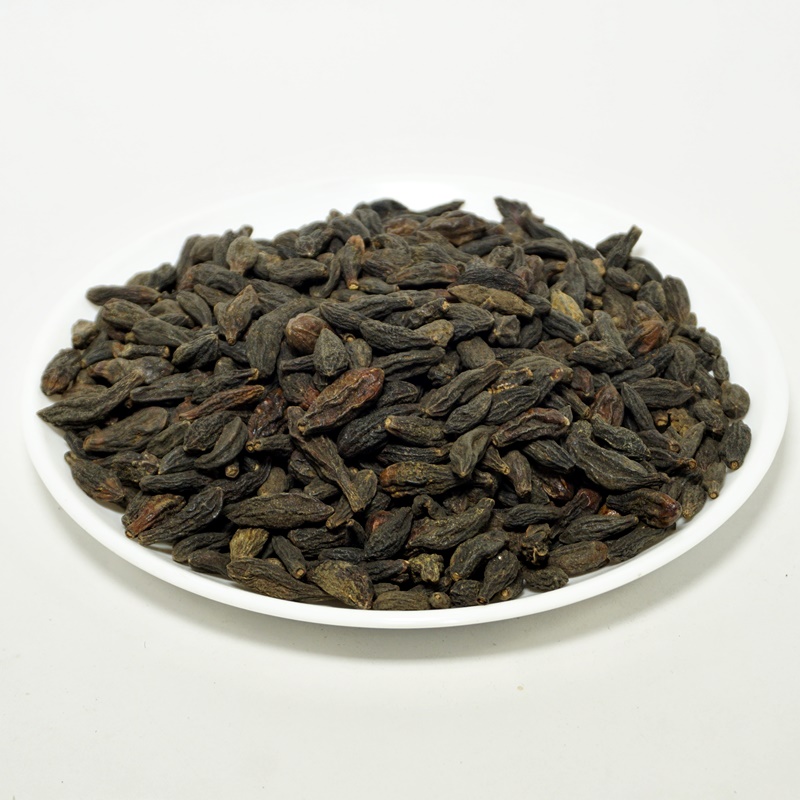
What is Choti Harad?
Choti Harad, also known as Black Myrobalan, is a popular herb used in traditional Ayurvedic medicine for centuries. It is derived from the Terminalia chebula tree and is highly regarded for its medicinal properties. This article will discuss the precautions, side effects, and benefits of Choti Harad.
Forms
Choti Harad (Small Harad) comes in several forms for different uses, including:
- Whole Dried Harad: The raw form, used in Ayurvedic preparations or boiled for medicinal teas.
- Harad Powder (Churna): Ground into a fine powder, commonly consumed with water, honey, or ghee for digestive and detox benefits.
- Harad Tablets/Capsules: Convenient for daily consumption, offering similar benefits as the powder.
- Harad Oil: Extracted for external application, used for skin issues, wounds, and hair care.
- Harad Decoction (Kadha): A liquid form made by boiling the dried fruit, typically used for treating colds, coughs, and digestive problems.
- Harad Murabba: The fruit is preserved in a sweetened syrup. It is prepared by soaking the Harad fruit in sugar syrup, making it softer and more palatable
Health Benefits
Choti Harad offers numerous health benefits due to its rich medicinal properties. Here are the key health benefits:
Weight Management
Choti Harad is often included in herbal weight loss formulations due to its metabolism-boosting properties. It is believed to enhance fat metabolism, reduce appetite, and promote weight loss
Digestive Health
Choti Harad is renowned for its digestive benefits. It is believed to stimulate digestion, improve appetite, and alleviate digestive disorders such as constipation, indigestion, and flatulence. The herb possesses laxative properties that can help promote regular bowel movements.
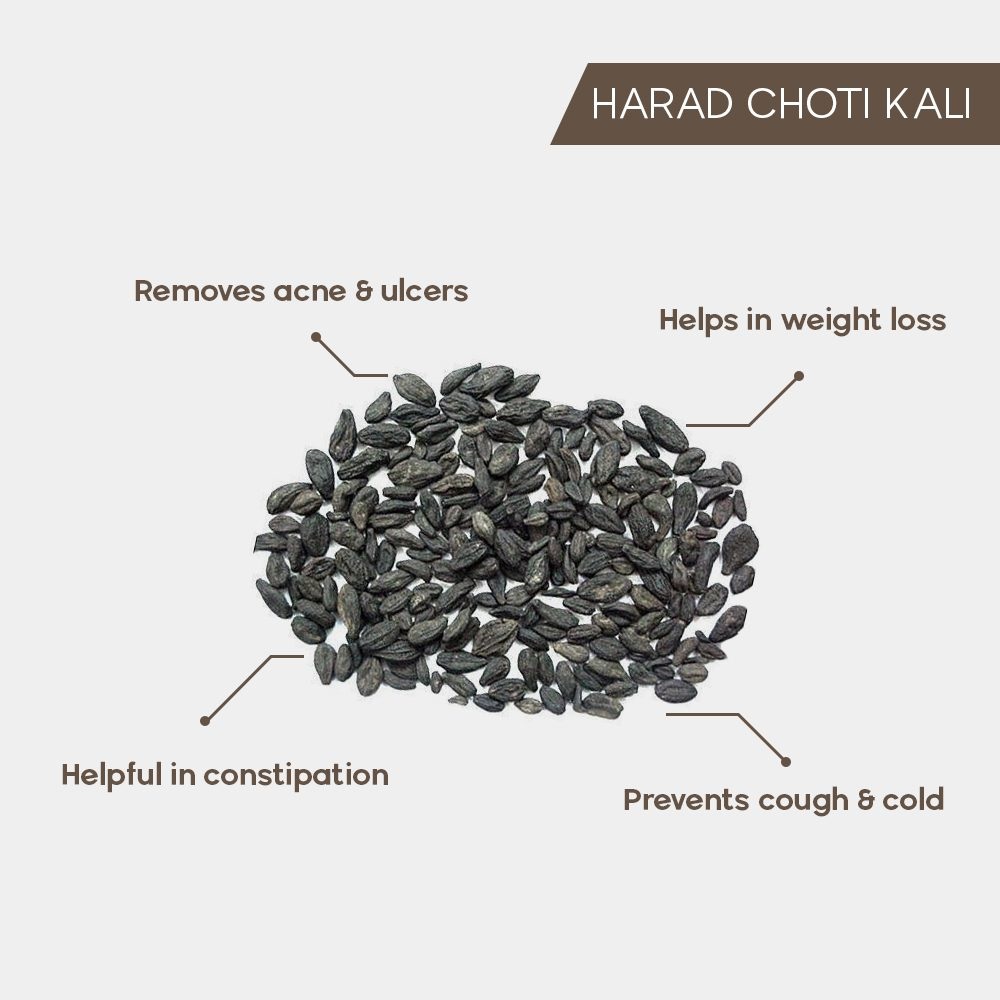
Respiratory Health
Choti Harad supports respiratory health in Ayurvedic medicine. It is believed to alleviate cough, bronchitis, and asthma symptoms due to its expectorant and bronchodilator properties. It may help loosen phlegm, reduce inflammation, and ease breathing.
Antioxidant Activity
Choti Harad is rich in antioxidants, which help protect the body against oxidative stress and damage caused by free radicals. These antioxidants may have anti-ageing effects, enhance immunity, and reduce the risk of chronic diseases.
Skin Benefits
Harad has pitta-balancing properties, which help purify the blood and reduce the chance of skin diseases. It also has Ramayana, or rejuvenating properties, which help develop new cells and lower dead cells, resolving pimples and acne-related issues.
Heart Health
Harad has cardioprotective properties, which strengthen the cardiac muscles and improve the heart’s overall health. It also helps in the growth of beta cells, which helps in reducing insulin resistance.
Arthritis Treatment
Harad has acetone extract that can effectively control arthritis by lessening the inflammatory effect. An aqueous extract from the dried fruit of Terminalia Chebula has anti-inflammatory properties.
Enhances Cognitive Function
Harad has been shown to improve memory and cognitive function. Its neuroprotective properties help protect brain cells from damage and improve brain function. It is often used in Ayurvedic medicine to treat conditions like Alzheimer’s disease and dementia.
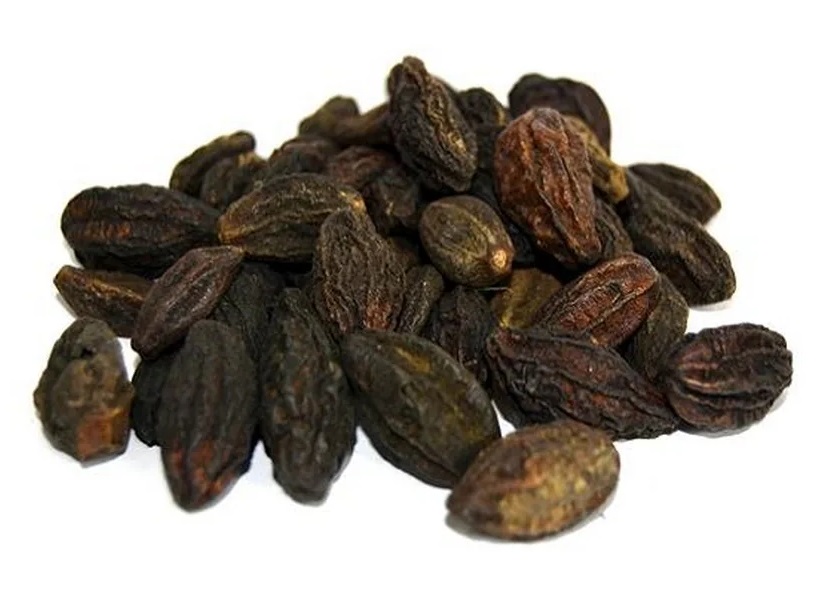
Regulates Blood Sugar Levels
Harad has anti-diabetic properties that help regulate blood sugar levels. It enhances insulin sensitivity and reduces the absorption of sugar from the intestines. This makes it beneficial for people with diabetes or those at risk of developing the condition.
Acts as a Natural Detoxifier
One of the harad powder uses is that it aids in detoxifying the body by flushing out toxins and cleansing the liver. Its purgative properties help in removing waste products from the body, thereby promoting overall health and well-being.
Improves Vision
Regular consumption of Harad can help improve eyesight. Its high content of vitamin A and other essential nutrients supports eye health, reduces eye strain, and prevents various vision-related problems.
How to Use Harad
Harad can be used in various forms such as powder, capsules, and tinctures. Here are some common harad uses:
- Harad Powder: Mix 1 teaspoon of Harad powder with warm water or honey and consume it before bedtime. Harad with milk benefits by helping improve digestion and detoxification of the body.
- Harad Capsules: Take 1-2 Harad capsules daily with water, preferably before meals. This is a convenient way to enjoy the benefits of Harad without the taste.
- Harad Murabba: Eat 1-2 pieces daily, preferably in the morning, to improve digestion and immunity while providing a tasty option.
- Harad Oil: For skin issues: Apply the oil directly to affected areas to heal wounds, rashes, or acne.
- Harad Decoction (Kadha): Boil 1-2 dried Harad fruits in water and consume the strained liquid to relieve coughs, colds, or digestive problems.
- Harad Tea: Prepare by boiling Harad powder in water, add honey, and drink for better digestion and detoxification.
Side Effects
Choti Harad is generally safe when used in moderation, but excessive or inappropriate use can lead to side effects. Some potential side effects include:

- Diarrhea
- Dehydration
- Lowered Blood Pressure
- Stomach Cramps
- Pregnancy and Breastfeeding Concerns
- Unwanted Weight Loss



